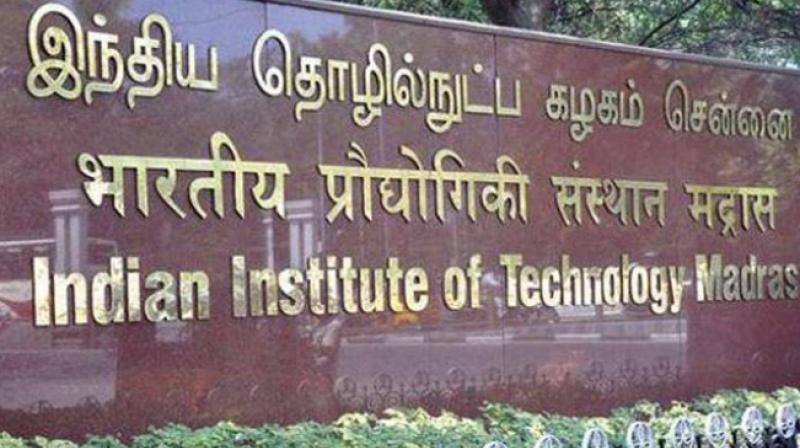IIT-M, Sankara Nethralaya study finds new cancer drugs
The common symptoms of retinoblastoma include the appearance of a white dot in the retina and squint.

Chennai: A cross-departmental study by Indian Institute of Technology Madras and Sankara Nethralaya researchers has found the biochemical principles of retinoblastoma, which is a childhood tumour that affects one or both eyes, especially in children. The study was recently been published in the journal, FEBS Letters.
Though retinoblastoma is a rare form of cancer, it affects one in every 1,500 children across the world and India holds around 1,500 new cases of retinoblastoma in children everyday. The common symptoms of retinoblastoma include the appearance of a white dot in the retina and squint.
The research team comprised of researchers from IIT Madras and Vision Research Foundation led by Dr Swagatika Sahoo, DST-INSPIRE Faculty, Department of Chemical Engineering, and Initiative for Biological Systems Engineering (IBSE), IIT Madras.
"The anti-cancer drug must selectively target malignant cells with high specificity, without affecting healthy cells, thereby avoiding serious side effects. The discovery of such drugs depends on understanding of differences in the mechanisms by which cancer cells grow and spread as opposed to normal cells. Using genome-scale mathematical modelling approaches, like the one described in this research, as well as, its validation/support from experimental experts can pave newer and safer diagnostic options," said Dr Swagatika Sahoo.
The study found that cancer cells use amino acids for their cellular energy, rather than carbohydrates and fatty acids as used by normal cells. Different types of cancer cells were seen to produce different long chain fatty acids, making them ideal biomarkers for the detection of cancer sub-types.
The observation of the study stated that cholesterol is under-synthesized in cancer cells, to prevent changes in redox potential, which are recognized by the body as 'stressors', and thereby the cancer cell can prevent the body from taking steps to rectify the situation. These observations lead to identification of synthetic reactions that can stop cancer growth, transport proteins were seen to be potential targets for drugs.
The research also identifies five more new drug targets that could develop new and more effective drugs with minimal side effects for the treatment of the disease.
Eight of these targets are already known and there are drugs available in the market to treat them. Five more new drug targets were identified as per the research, which offers the potential for development of new and more effective drugs with minimal side effects.

